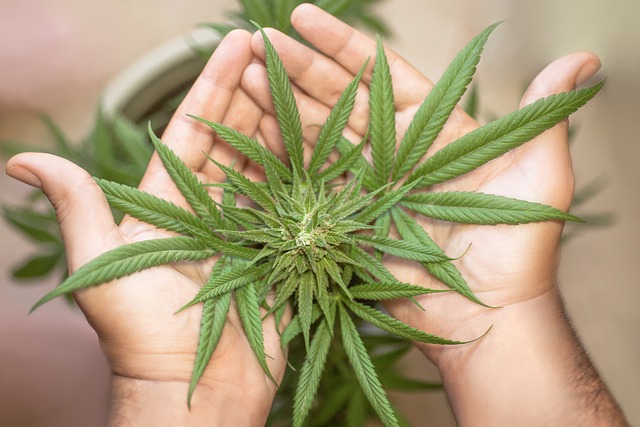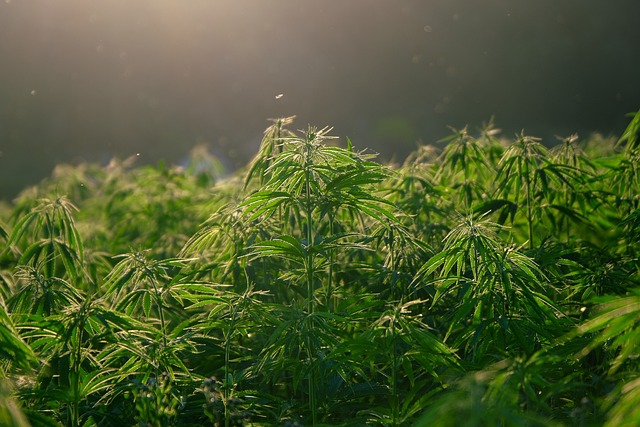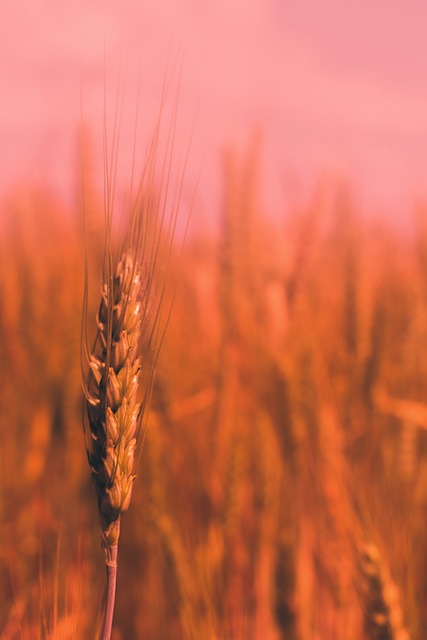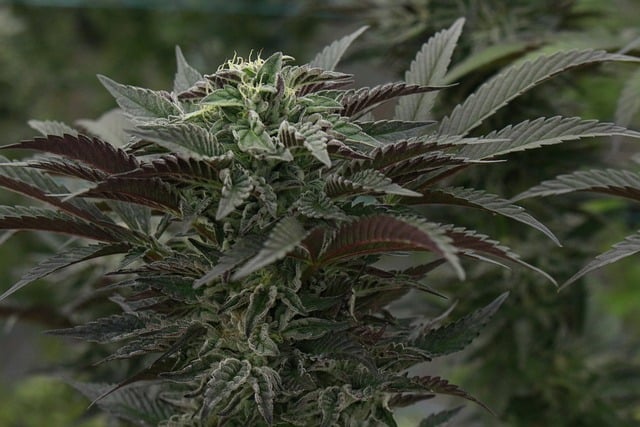2023 marks a year where THCA (Tetrahydrocannabinolic Acid), a non-psychoactive compound with potential therapeutic benefits, gained legal recognition for medical use in New York, following the broader adult-use cannabis legalization that began with the Marijuana Legality Act (MLA) in 2021 and continued with the enactment of the Marijuana Regulation and Taxation Act (MRTA) in the same year. In New York, THCA's legal status is distinct from its psychoactive counterpart THC, and it is permissible under both state regulations and the 2018 Farm Bill for federally sourced hemp-derived THCA. The state's cannabis industry is gearing up to regulate the sale of THCA flower, with specific guidelines, age restrictions, and possession limits in place. Growers interested in cultivating THCA flowers within New York must comply with local zoning laws and adhere to plant count limitations, ensuring their operations are fully compliant with state and local regulations. The emerging market for THCA presents opportunities for medicinal use, with preliminary research suggesting its potential in managing pain, nausea, and appetite loss. Patients should consult healthcare providers to understand the implications of THCA's therapeutic properties and dosing, as this non-psychoactive cannabinoid continues to garner attention within New York's regulated cannabis landscape.
explore the multifaceted world of THCA (Tetrahydrocannabinolic Acid) flower, a non-psychoactive compound found in cannabis that is gaining attention for its potential therapeutic benefits. As the legal landscape of THCA flower evolves, particularly in New York, enthusiasts and patients alike are delving into its uses, effects, and cultivation. This article provides a comprehensive guide to understanding and utilizing THCA flower within the confines of New York’s regulations. From the intricacies of its chemical composition to the practical aspects of consumption, storage, and strain selection, we cover it all, ensuring you have the knowledge to make informed decisions about incorporating THCA flower into your wellness routine. Join us as we navigate the nuances of THCA’s legal status in New York, the importance of compliance, and the future of research and acceptance for this promising cannabinoid.
- Understanding THCA Flower: A Comprehensive Overview
- The Legal Landscape of THCA Flower in New York
- Cultivating THCA Flower in New York: A Guide for Growers
- The Benefits and Effects of Consuming THCA Flower
Understanding THCA Flower: A Comprehensive Overview

THCA, or Tetrahydrocannabinolic Acid, is a naturally occurring compound found in the Cannabis sativa plant that serves as the precursor to the more well-known psychoactive cannabinoid, THC. As of my knowledge cutoff in 2023, THCA’s legal status in New York aligns with broader state regulations, where recreational use has been legalized but is subject to specific guidelines and age restrictions. This distinction is crucial for consumers and businesses operating within the state’s legal framework.
Understanding THCA flower tips begins with recognizing its unique properties. Unlike THC, THCA is non-psychoactive, meaning it does not produce the ‘high’ associated with cannabis consumption. Instead, enthusiasts are drawn to THCA for its potential therapeutic benefits, including pain relief and anti-inflammatory effects. When heated or decarboxylated, THCA converts into THC, unlocking its psychoactive properties. Therefore, the manner in which THCA flower is handled post-harvest is a significant factor in determining its final effect. In New York, where the cultivation and possession of cannabis for adult use are regulated, consumers must be aware of these nuances to ensure compliance with the law while optimizing the benefits of THCA. Understanding the subtle differences between THCA and THC, as well as their legal status, is essential for both medical and recreational users in New York.
The Legal Landscape of THCA Flower in New York

In recent years, the legal status of THCA (Tetrahydrocannabinolic Acid) flower has seen significant developments in New York. As of the latest updates, THCA is a non-psychoactive cannabinoid found in raw or uncured cannabis plants. The state’s legislature has been proactive in reshaping its cannabis laws. In 2021, New York legalized adult-use recreational cannabis through the Marijuana Legality Act (MLA), which came into effect on March 31, 2022. This landmark legislation not only decriminalized cannabis but also set forth a framework for its regulated sale and use. Under this new legal landscape, THCA flower is permissible provided it complies with the state’s regulations regarding possession and purchase, which include limits on quantity and age restrictions for consumers. Retail sales of cannabis products, including THCA flower, are anticipated to commence after the New York State Cannabis Control Board finalizes its regulations. It’s important for consumers to stay informed about the evolving regulations to ensure they are in compliance with state laws. As New York continues to navigate the intricacies of cannabis legalization, THCA flower is set to become a regulated product in a burgeoning market, offering both medicinal and recreational benefits to residents within the confines of the law.
Cultivating THCA Flower in New York: A Guide for Growers

In New York, cultivating THCA flower is a subject of growing interest following the legalization of cannabis for adult-use under the Marijuana Regulation and Taxation Act (MRTA) in 2021. However, it’s crucial to stay updated with local laws and regulations, as they can evolve. For those interested in legally growing THCA flower in New York, this guide provides essential steps and considerations. Firstly, ensure that you are compliant with state and local laws; while the MRTA has legalized cannabis, there may be specific ordinances within municipalities that govern where and how many plants can be grown. Choose a secure, discreet location with optimal sunlight exposure and appropriate ventilation to cultivate your THCA flower, as this cannabinoid precursor thrives in environments with a balance of light and temperature control.
Secondly, the soil quality and nutrient management are paramount for producing high-quality THCA flowers. Invest in organic, nutrient-rich soil to provide a strong foundation for your plants. Regularly monitor the pH levels and adjust as necessary to ensure that your plants can efficiently absorb nutrients. Additionally, be mindful of the humidity and temperature, aiming for consistent conditions that mimic the plant’s natural habitat. Proper care and attention will lead to a successful cultivation of THCA flower in New York, yielding a product rich in the raw cannabinoid that can later be converted into various desired cannabinoid profiles through curing and heating processes. Always prioritize adherence to local regulations and best practices for cultivation to ensure a legal and sustainable grow operation.
The Benefits and Effects of Consuming THCA Flower

THCA, or tetrahydrocannabinolic acid, is a natural compound found in cannabis plants that has garnered attention for its potential therapeutic benefits. Unlike its more famous counterpart, THC (tetrahydrocannabinol), THCA is non-psychoactive, making it an appealing option for individuals seeking the health effects associated with cannabis without the high. As of the knowledge cutoff in 2023, THCA flower is legal in New York under state laws for medical use, and certain forms of hemp-derived THCA are legal federally under the 2018 Farm Bill.
Consumers interested in the potential benefits of THCA may find it useful for its anti-inflammatory and neuroprotective properties. Preliminary research suggests that THCA may be effective in managing pain, nausea, and lack of appetite. It is also being studied for its potential to support immune function and offer neuroprotection, which could be beneficial for conditions like multiple sclerosis or inflammatory bowel disease. In New York, where the legal landscape is favorable for medical cannabis products containing THCA, patients have access to these potentially therapeutic effects within a regulated framework. As with any supplement or medication, it’s important for consumers to consult with healthcare professionals before incorporating THCA flower into their wellness routine to ensure compatibility with their health status and to understand the appropriate dosing based on individual needs.
THCA flower, a non-psychoactive cannabinoid found in the cannabis plant, has garnered significant attention due to its potential therapeutic benefits. This article has delved into the multifaceted aspects of THCA flower, from understanding its composition and effects to navigating the legal landscape governing its use, particularly in New York. For those interested in cultivation, the guide provided offers a roadmap for New York growers to legally cultivate THCA flower. In light of the detailed exploration presented, it’s clear that THCA flower is an emerging area within the legal cannabis space in New York, offering both opportunities for wellness and clarity for stakeholders. As regulations evolve, the potential of THCA flower continues to be a subject of great interest and importance in the realm of alternative wellness solutions.
